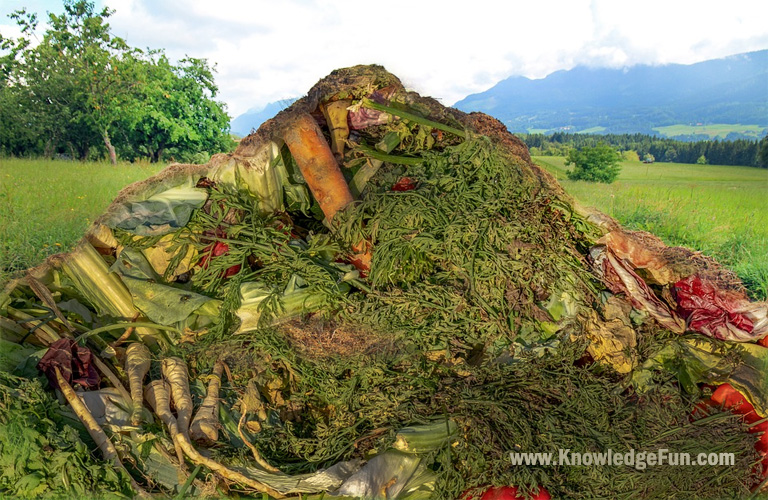Making Compost
by Steve Solomon
The closest analogies to composting I can imagine are concocting similar fermented products like bread, beer, or sauerkraut. But composting is much less demanding. Here I can speak with authority, for during my era of youthful indiscretions I made homebrews good enough have visitors around my kitchen table most every evening. Now, having reluctantly been instructed in moderation by a liver somewhat bruised from alcohol, I am the family baker who turns out two or three large, rye/wheat loaves from freshly ground grain every week without fail.
Brew is dicey. Everything must be sterilized and the fermentation must go rapidly in a narrow range of temperatures. Should stray organisms find a home during fermentation, foul flavors and/or terrible hangovers may result. The wise homebrewer starts with the purest and best-suited strain of yeast a professional laboratory can supply. Making beer is a process suited to the precisionist mentality, it must be done just so. Fortunately, with each batch we use the same malt extracts, the same hops, same yeast, same flavorings and, if we are young and foolish, the same monosaccarides to boost the octane over six percent. But once the formula is found and the materials worked out, batch after batch comes out as desired.
So it is with bread-making. The ingredients are standardized and repeatable. I can inexpensively buy several bushels of wheat- and rye-berries at one time, enough to last a year. Each sack from that purchase has the same baking qualities. The minor ingredients that modify my dough's qualities or the bread's flavors are also repeatable. My yeast is always the same; if I use sourdough starter, my individualized blend of wild yeasts remains the same from batch to batch and I soon learn its nature. My rising oven is always close to the same temperature; when baking I soon learn to adjust the oven temperature and baking time to produce the kind of crust and doneness I desire. Precisionist, yes. I must bake every batch identically if I want the breads to be uniformly good. But not impossibly rigorous because once I learn my materials and oven, I've got it down pat.
Composting is similar, but different and easier. Similar in that decomposition is much like any other fermentation. Different in that the home composter rarely has exactly the same materials to work with from batch to batch, does not need to control the purity and nature of the organisms that will do the actual work of humus formation, and has a broad selection of materials that can go into a batch of compost. Easier because critical and fussy people don't eat or drink compost, the soil does; soil and most plants will, within broad limits, happily tolerate wide variations in compost quality without complaint.

Some composters are very fussy and much like fine bakers or skilled brewers, take great pains to produce a material exactly to their liking by using complex methods. Usually these are food gardeners with powerful concerns about health, the nutritional quality of the food they grow and the improved growth of their vegetables. However, there are numerous simpler, less rigorous ways of composting that produce a product nearly as good with much less work. These more basic methods will appeal to the less-committed backyard gardener or the homeowner with lawn, shrubs, and perhaps a few flower beds. One unique method suited to handling kitchen garbage—vermicomposting (worms)—might appeal even to the ecologically concerned apartment dweller with a few house plants.





